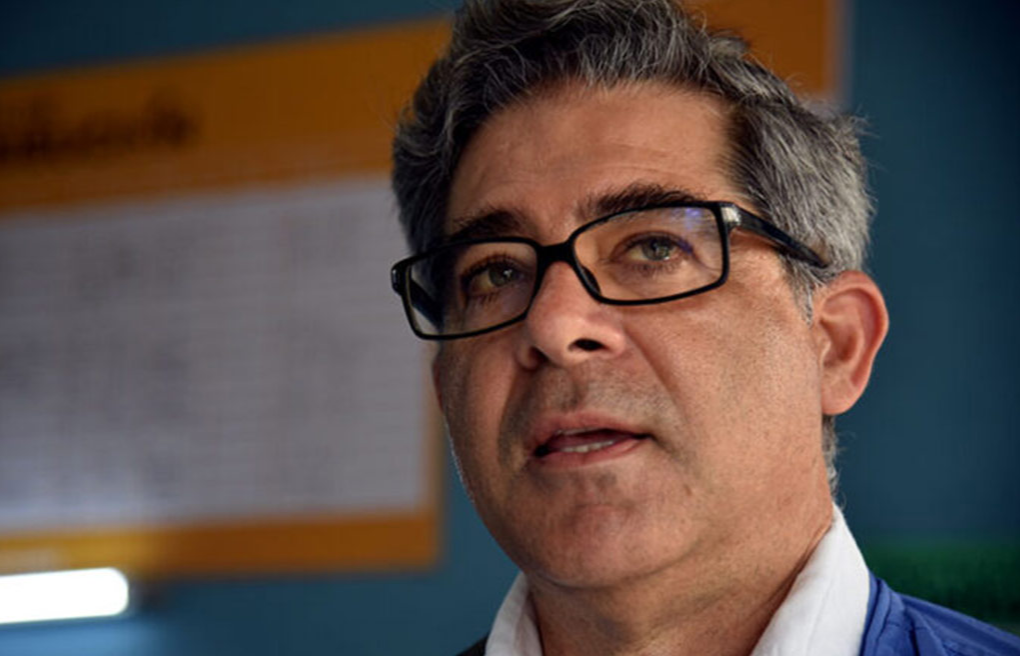
Francisco Pichon, United Nations Resident Coordinator in Cuba
United Nations, November 17 (RHC) -- The US blockade and the inclusion in the list - drawn up by Washington - of countries that allegedly sponsor terrorism constitute Cuba's main challenge to finance the 2030 Agenda, assured the United Nations resident coordinator in the Caribbean nation, Francisco Pichón.
Cuba's route towards the Sustainable Development Goals (SDGs) today faces a particular and complex context marked by external pressures, according to the UN representative.
"This demands intense work to ensure that the country's achievements, which are the benchmark in the Latin American region in areas such as health and education, can be maintained and that their quality is not eroded," he remarked.
While most countries are talking about putting the Sustainable Development Goals on track, Cuba insists on not losing what has been achieved, he added.
Pichón participated this week in the meeting of resident coordinators of the United Nations System, held in New York and focused on addressing the main issues of the work of its offices in more than 100 countries right in the middle of the road mapped out for the 2030 Agenda.
The meetings opened discussions in areas such as food systems, energy, digital connectivity, education, jobs and social protection, as well as climate-related challenges.
The SDG Summit, held in September during the high-level week of the General Assembly, confirmed the commitment of member states and the body itself to achieve these goals in areas such as food, education, renewable energy and the climate crisis.
However, the support of the United Nations to the largest of the Antilles on this path faces its own challenges, such as access to financing -whether credit or loans-, the search for suppliers or the transfer for the prepositioning of aid for emergencies.
In that sense, the UN's top representative in Cuba acknowledged the need to address with more emphasis the obstacles for economically blockaded nations in discussions as important as financing for development.
"UN Secretary General António Guterres has talked about reforming the international financial system for countries with high debts but we are talking about the exclusion of Cuba from that system as imperfect as it is," he acknowledged.
However, there is a strong commitment to work in the UN System in Cuba and the 22 agencies that comprise it to seek ways out and ways of working that work in these circumstances.
"We have the great challenge of not leaving the country without options; Cuba maintains a commitment to the 2030 Agenda and does what it can and more with its public resources," he insisted.
External sanctions and inclusion among the countries sponsoring terrorism impose huge restrictions on the Caribbean nation in terms of its partners to accompany the 2030 Agenda.
However, the island has the support of the European Union, Canada, Switzerland, Spain, and other non-traditional donor countries such as Vietnam, China or Kuwait, willing to do more in terms of South-South cooperation and the cooperation framework outlined between Havana and the United Nations System.
Pichón recalled that the country designed a road map aligned with the UN goals called National Economic and Social Development Plan 2030 and this year strengthened its commitment to multilateralism at the head of the G77 and China.
That bloc has served as a platform for the head of the UN to reaffirm the support of the countries of the South on an issue as important as the reform of the international financial system.
"We have the energy to respond and find a way forward," the resident coordinator asserted, mentioning important fields of joint work such as new forms of economic management, response to natural disasters or social protection focused on vulnerable groups.
"Cuba is very supportive of the United Nations and the 2030 Agenda but it also requires a lot of help with specific mechanisms that work in countries under sanctions," the representative emphasized. (Source: Prensa Latina)

